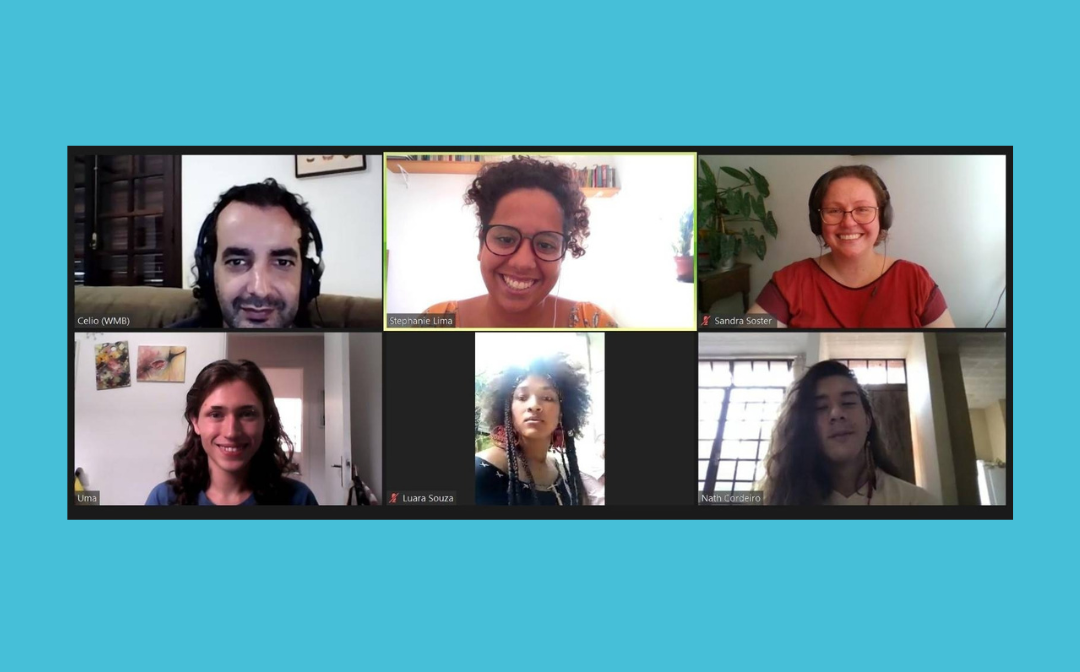
InternetLab promotes workshop with members of Núcleo de Consciência Trans (Transgender Awareness Group)
Along with Wiki Movement Brazil, InternetLab expands mapping about knowledge equity in a workshop with a group of transgender students at State University of Campinas (UNICAMP).
On August 18, 2022, InternetLab, in partnership with Wiki Movement Brazil, held a workshop about Wikipedia with members of Núcleo de Consciência Trans (Transgender Awareness Group), from the State University of Campinas (UNICAMP). The activity is part of the project Knowledge Equity, a fellowship conducted by InternetLab and Wikimedia Knowledge Equity Fund.
The project
The project was set in motion with a Meeting and a Seminar that took place on February and March and aimed at gathering and hearing social agents that act and/or research on free knowledge and/or knowledge equity. In August, 2022, we published the Mapping “Transformation, challenges and strategies after 10 years of the Quotas Act”, in which, by systematizing reports from these agents, we were able to understand the relation between the internet and the search for knowledge equity.
On that publication, we detailed the transformations and challenges for achieving a more egalitarian production and circulation of knowledge that still remain after 10 years of the Quotas Act. One of the points brought up by the participants, related to strategies to connect the claims for knowledge equity and the defense of free knowledge, was to think about practical solutions. One of the examples mentioned by the group was the possibility of using free platforms to the production and access to knowledge developed by black and indigenous people. For this purpose, Wikipedia is seen as an ally for the reduction of unequal processes.
When responding to this question, a few participants who had experience in events as editing marathons commented on the importance of bringing the platform closer to spaces of formal education. One of the participants pointed out the need to organize workshops about Wikipedia targeting basic and higher education students. To her, Wikipedia should be understood as a space in which it is possible to push the barriers present in formal spaces of knowledge dissemination.
Having this in mind, we entered into dialogue with different groups in order to organize workshops about Wikipedia. In partnership with Wiki Movement Brazil, we carried out our first workshop with the Transgender Awareness Group at UNICAMP, majorly composed of black students.
Although our project has the initial focus of dealing with issues related to inequalities of race and ethnicity, we believe the barriers to the production and access to knowledge intersect distinct social markers of difference, such as race, ethnicity, gender, sexuality, class and territory.
The reproduction of social inequalities on digital environments
Throughout the workshop, profiles were created for the participants to edit existing entries related to the transgender population. The main issue discussed by the participants referred to the limits of what is sufficiently relevant to appear on Wikipedia. On the occasion, we explained that, for a theme or a person to have an entry on the platform, one must prove through reliable sources that this entry is relevant.
The problem lies on what is seen as a reliable source, or on the criteria to determine whether a theme is sufficiently relevant. Thus, as pointed out on the workshop, subjects related to historically marginalized populations may find it harder to pass through the sieve, due to: i) low social relevance, which is related to the inequalities that structure society; ii) difficulty in attesting the relevance of certain themes when following the criteria of “reliable sources”.
The workshop, thus, not only promoted the strengthening of entries related to the transgender population, which received more information, but also yielded an intense debate about the platform’s limitations concerning the inequalities that are reproduced on online spaces, which also include platforms willing to collaborate with free knowledge.
Note: Editing Marathons or Editathons are events for online communities, as the Wikipedia project, that consist of gathering people to edit specific themes or to improve the platform’s entries, besides bringing closer and inviting new people to take part on the project’s editing community.